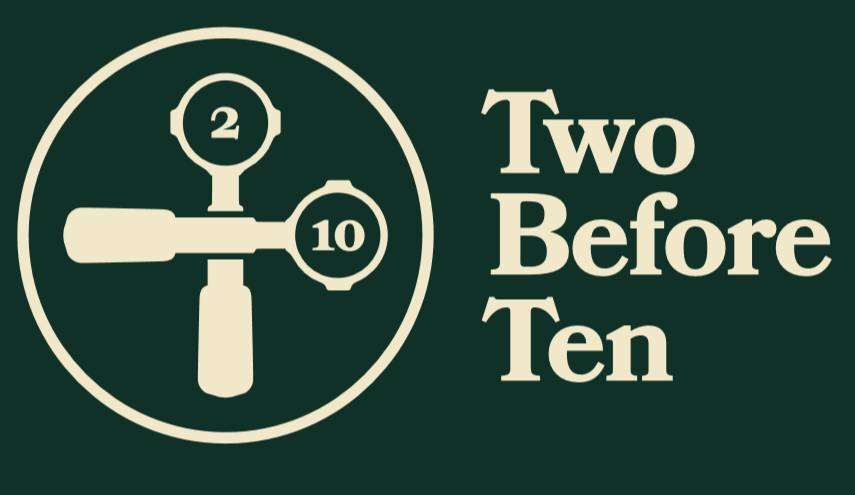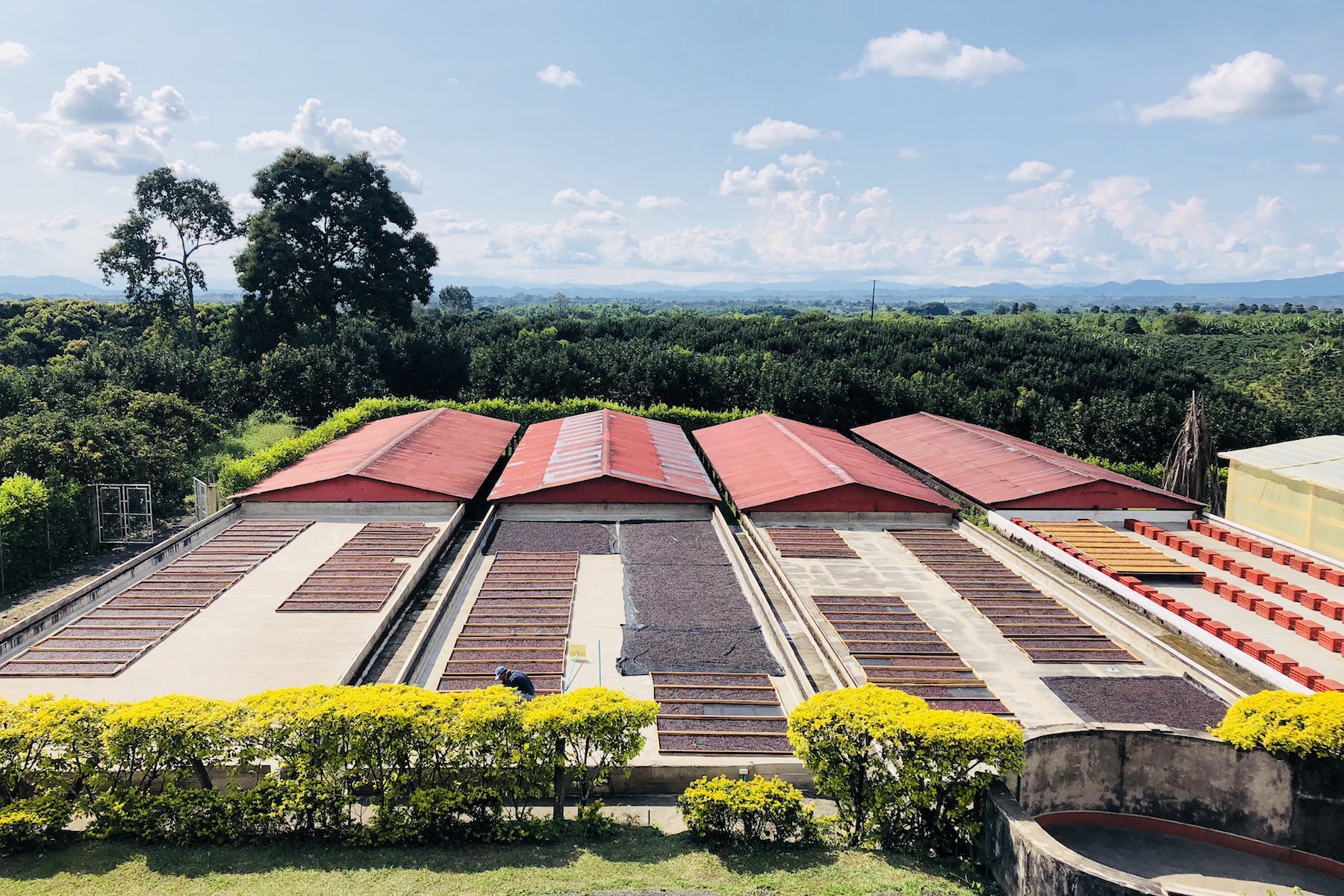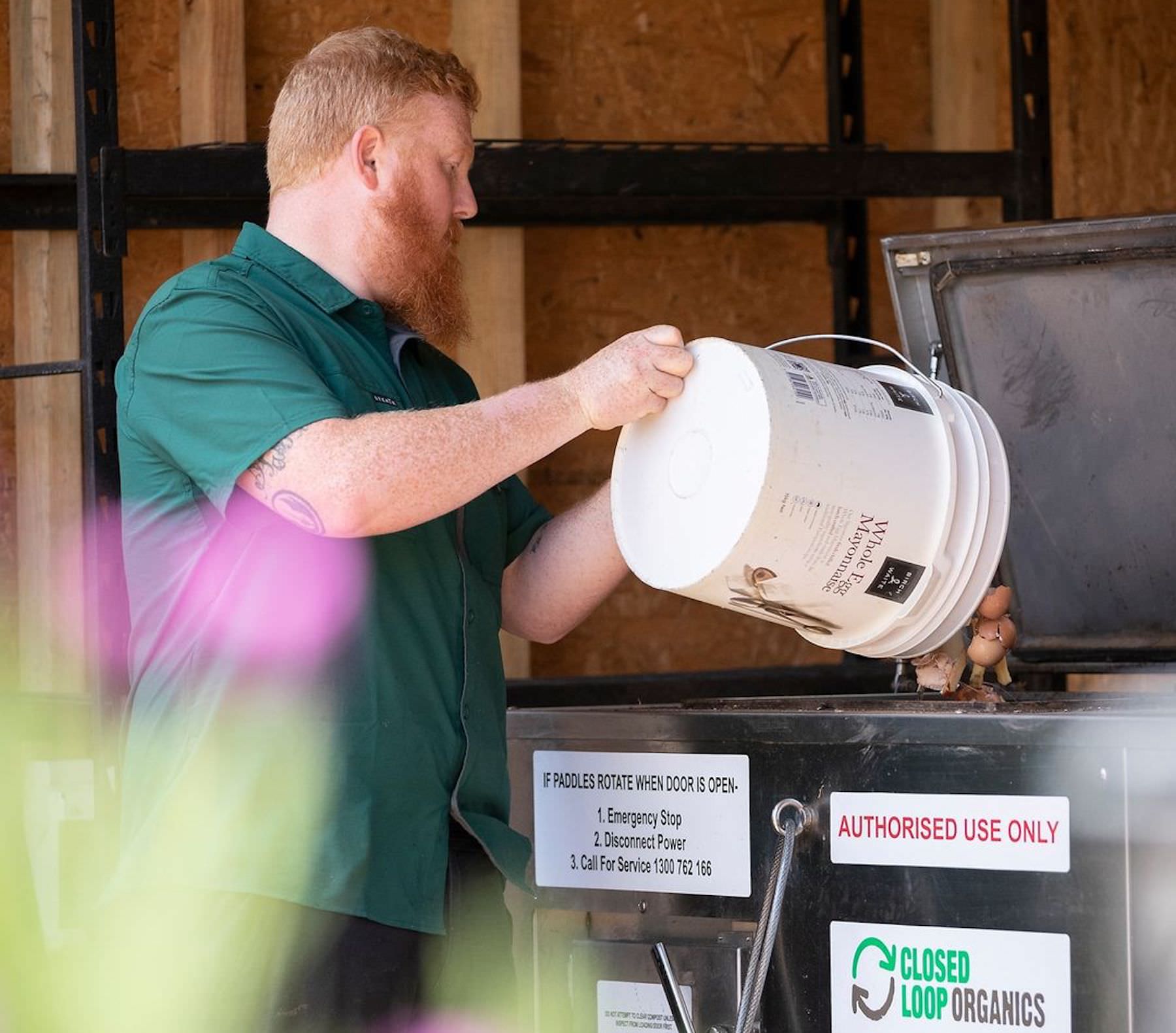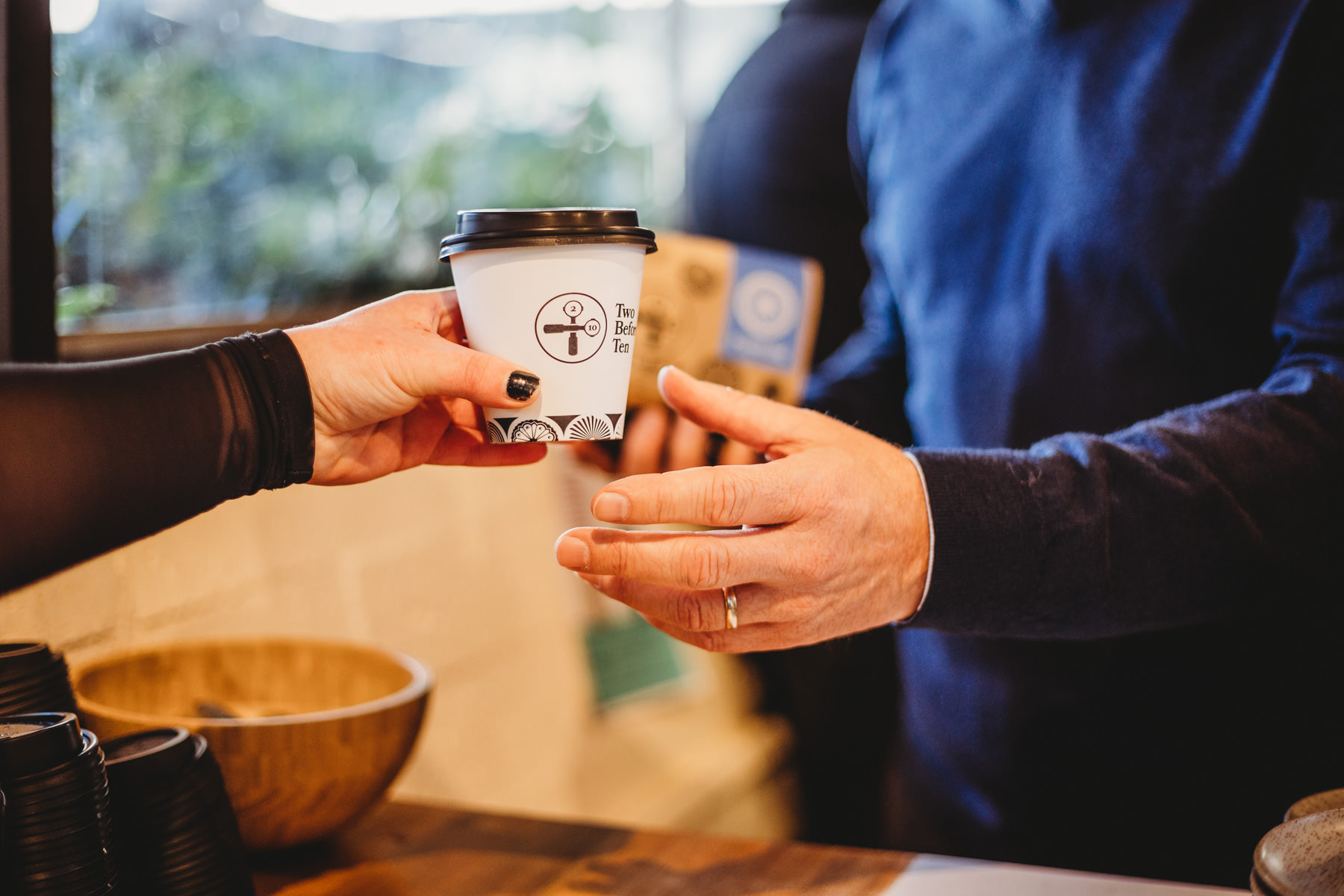What We're Doing to Reduce Our Footprint
Sourcing coffee only from farms with sustainability initiatives and full traceability
The coffee industry can be wasteful by its very nature of occupying fertile farmland for a luxury product, so it’s extra important to us that we’re supporting those producers going the extra mile to do the right thing. The world of specialty coffee farms is wide and varied, but often difficult to find transparency of what’s actually happening at origin. We choose to source exclusively from farms and cooperatives that are receiving fair payment and doing good for their local community. This can involve anything from water recycling programs, to environmental corridors of native trees, to children lunch programs and building of schools. See more about our coffee origins.

Using sustainable focused suppliers:

Who Gives a Crap toilet paper
Who Gives a Crap was started after the realisation that 2.3 billion people across the world don’t have access to a toilet – meaning 289,000 children under five die every year from disease caused by poor water and sanitation – that’s 800 children a day, or one child every two minutes. They donate 50% of their profits to fund a variety of water, sanitation and hygiene projects, like building toilets, advancing disability inclusion, and providing soap and hand washing stations in countries like Papua New Guinea, Timor Leste, Kenya and India. Their business vision, like ours, is built on the idea that we can all make the world a better place.

Kokonut Pacific
We use coconut sugar in our hot chocolate mix and house chai blend. The sugar is sourced from Kokonut Pacific who work in partnership with local communities to improve their lives by building sustainable value chains, connecting remote coastal communities and revitalising the smallholder coconut industry with appropriate technology. They take coconut processing back to the farms where the nuts are grown. There, families are able to produce DME Extra Virgin Coconut Oil (DME-EVCO) within one hour of opening a coconut. Mushrooms
We have two mushroom farms on-site at Aranda, producing 40kg a week for stores with a goal of getting to 100kg a week by the end of the year. It’s run by Spored Mushrooms and Microgreens which is based out of Banjo’s Paddock farm in Wallaroo. The mushrooms are organically grown on a coffee waste mix. Spent mycelium is then utilised as mushroom compost on the Urban Farm, enabling a circular economy.


Retail Coffee Bags
We use compostable 250g and 1kg retail bags for retail coffee. Every part of the bags is commercially compostable including the interior PLA lining (made from agricultural waste products), printed ink and PLA zippers and one-way gas valve. PLA has been around for a century but is only recently becoming more widespread as a plastic alternative. It's derived from the waste products of renewable resources like starch and sugarcane and breaks down fastest in hot compost (over 60C) with the correct micro-biomes present. But will also break down over a longer period of time in home compost, and biodegrades completely within 24 months if it ends up in the ocean. We have collection bins available at our cafes, ready for our commercial composter (arriving soon!). Read more about PLA for packaging applications.

Carbon Neutral Food Packaging
At the start of 2020 we made the move to Biopak for our food and coffee packaging. We switched our takeaway cups & lids, takeaway food containers, takeaway cutlery, napkins and drink trays to biodegradable and renewable options, which made a huge difference at a time when cafes were all on takeaway only service. Biopak packaging is plastic-free and a percentage of their profits go towards Rainforest Rescue and other charity programs. They are the first packaging company in Australia and New Zealand to become carbon neutral.
Not providing plastic straws
“With 8 million tons of plastic dumped into our oceans every year, our marine life is swallowing more plastic than ever — and it’s killing them.” [Reference] We are proud to say we are a plastic-straw free company. We have paper straws available at request, but our general rule is – no straws.
Aranda Urban Farm
With an acre of land in the heart of Canberra, the Aranda Urban Farm supports our cafes by growing fresh, sustainable produce throughout the year. From mixed lettuce, to cherry trees and sweet corn crops, the farm helps reduce our packaging and food miles as well as turning the compostable green-waste from our cafes back into productive fruit and veg in a sustainable circular system. In recent times we have launched our “Urban Farm Goods” brand under the management of Ingrid – already she has implemented a product line of hot sauce, kombucha, pickles and kimchi all made from garden produce and food scraps.


On-site Waste Sorting Collection Bins
To reduce the amount of waste going to landfill we have introduced a sorting system to convert single-use materials back into useful product. With the help of customers, our green, yellow, blue, grey and red bins on-site at Aranda enable us to turn organics into compost and send glass, cardboard and plastics off to be recycled. It’s also a great way to get us thinking about where our rubbish actually ends up.
Food for Coffee, Produce Exchange Program
Each one of our cafes also operates a produce exchange program where anyone can bring in excess fruit, herbs or vegetables from their home gardens in exchange for coffee or other products. Our vision is to ultimately use the gardens around our café to supply a significant amount of produce and involve the community in the production of their own food. In this way we can utilise resources otherwise directed towards aesthetic gardens as productive land, maximising community involvement and creating a true suburban farm.

Re-usable timber boxes and tins for coffee delivery
Our roastery used to have a high volume of cardboard boxes used for deliveries. As a lot of our clients are local, we were able to introduce reusable timber crates instead of cardboard boxes – significantly reducing our waste footprint. Later we introduced tins for wholesale coffee, which have ended up saving over 15,000 single-use bags from landfill so far.

Two Before Ten Keep Cups & Green Caffeen Program
“Every year an estimated 500 billion disposable cups are thrown away worldwide after a single use! That’s 1 million cups an hour and the number is growing. Over 1.2 billion disposable coffee cups are used each year in Australia, 90% of which end up in landfill or littering the streets. Cups and lids are also finding their way into our oceans where they breakdown and form tiny pieces called microplastics. These are ingested by marine life and cause millions to die every year. Paper coffee cups are usually lined with plastic (Liquid paper board- LPB) to make them waterproof. Although the paper outside will breakdown, the plastic inner won’t. To recycle them they must be sent to a specialist recycling facility that is costly and complicated. Consequently only 8% are recycled. This equates to 2.7 million coffee cups in Australia going to land fill each day.” Green Caffeen
Our branded Keep Cups in 8oz and 12oz have been selling well. We chose the tempered glass cups with recycled cork band design to keep with natural materials and avoid using plastic unnecessarily .
Alternatively, customers have the option to use the Green Caffeen System of swappable plastic cups: Scan, swap, drink, return. A re-useable coffee cup system, like borrowing a library book, an easy waste-free option if you have forgotten your own cup or don’t have one.

Re-usable Coffee Grinds
We produce many kilos of ground coffee and ‘chaff’ from roasting on a daily basis. To avoid such a rich resource going to waste, we bag it up in compostable bags for our community to take home and repurpose in their gardens. Coffee grinds also have a lot of great uses outside of the garden, read more.
We're in the early stages of working with Lachlan McCaffrey to develop a line of pH-balanced compost designed for particular applications such as tomatoes and roses, based on a mixture of nutrient-rich roaster chaff and horse poo.

Aranda’s Native Garden
Greening Australia is “an environmental enterprise that thinks big to tackle the challenges facing Australia’s unique and diverse landscapes in ways that work for communities, economies and nature.” It’s vision is to create healthy, productive landscapes where people and nature thrive. We are lucky enough to have them on board managing our Native Garden at Aranda, located behind our Mushroom Units in flight distance for our busy bees on the far east side of our block. The garden specifically focuses on plants native to the Canberra region, and will soon be extending to circle the area around our bee hives, surrounding them with flowering natives.

Honey Bees
We started with two hives in our native garden on the east side of our Aranda block – providing the perfect space for the bees to thrive away from customers and work their magic pollinating our Urban Farm. Bees will travel 3-5km from the hive in search of nectar and pollen, so our entire veggie garden reaps the rewards of these hard working 'tradies'. The hives are nurtured in the native garden with water baths and no pesticides. In return, The Honey Smith manages the hives to have as little impact on the natural ecosystem as possible. By June we decided two wasn’t enough and had four extra hives added in preparation for spring.

Uniforms
Our staff t-shirts and jumpers are sourced from Organic Tees who are an Australian company supplying certified organic and ethically manufactured (sweatshop free) clothing with the highest quality, low impact, water-based screen printing inks. They use Earth Positive apparel, which is manufactured solely using sustainable energy generated from wind and solar power and ethically produced under the Fair Wear Foundation guidelines.
Recycled Fit Outs
The Aranda Shops project fundamentally changed the focus of Two Before Ten and clarified the purpose as a business. The revitalisation of the site was incremental and relied heavily on the support from the community and the gifting and re-use of materials from everywhere imaginable. A lot of our fit outs incorporate materials salvaged from old stores. Our most recent project, knocking down walls at Aranda, led to our Canberra Red bricks being re-used to build walls and driveways, and most of our benches have been built from recycled timber.





